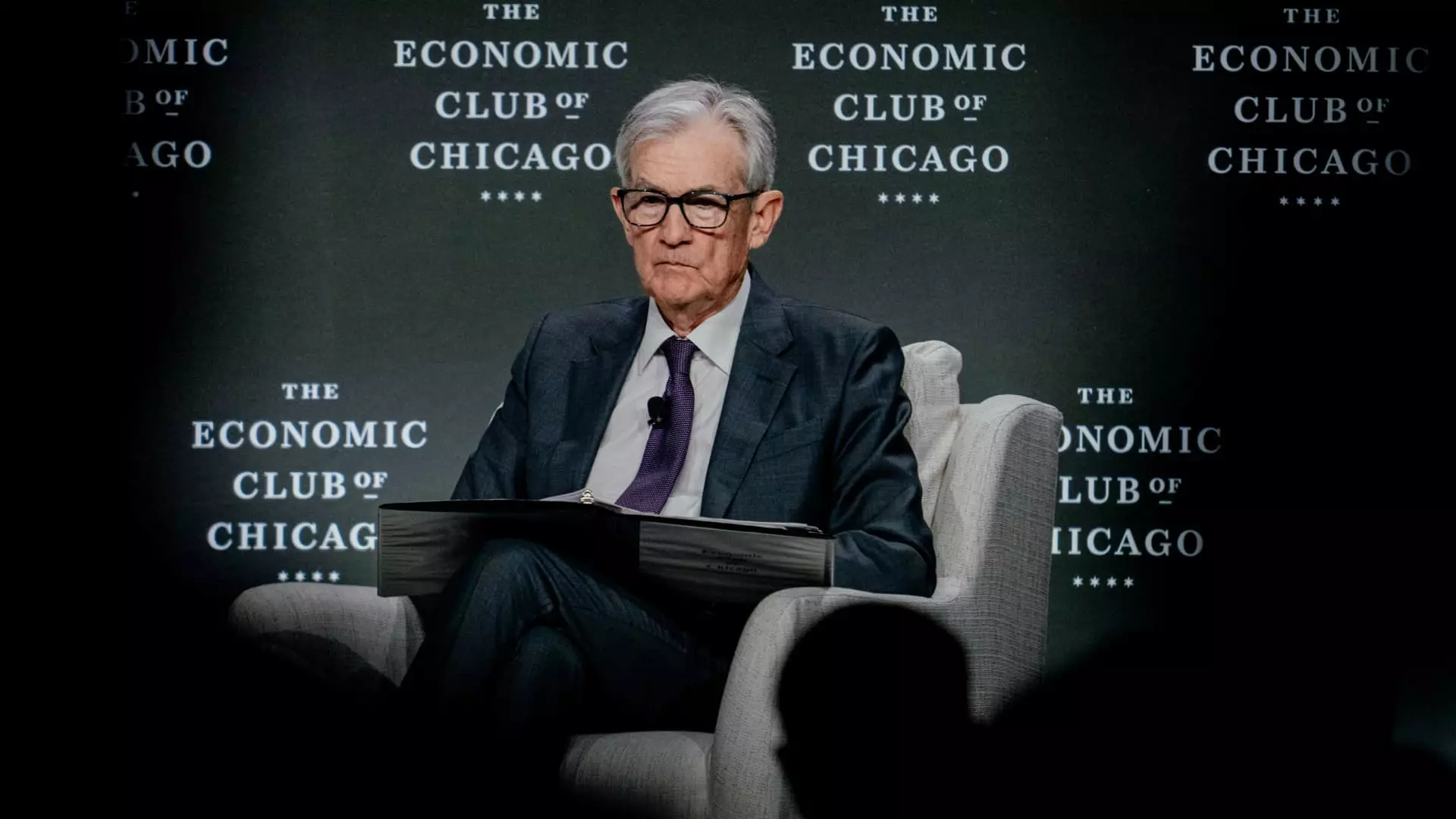In the ever-turbulent landscape of American politics, few dynamics have proven as precarious as the relationship between President Donald Trump and the Federal Reserve Chairman Jerome Powell. By launching scorching verbal attacks on Powell—most recently dubbing him a “major loser”—Trump seems to be engaged in a dangerous game of these political and economic chess pieces. The stakes are steep, as lowering interest rates could provide a shimmering illusion of economic growth, while destabilizing the Fed’s independence undermines the core principles upon which our economic system is built.
To refer to Powell as a “major loser” is not merely an affront to decorum; it symbolizes a blatant disregard for the sanctity of economic governance. The Federal Reserve’s independence is not just an abstract principle; it serves as a bulwark against political whims that can derail long-term economic strategies. Trump’s scenario of a “slowdown” in the economy—while painting a rosy picture of “virtually no inflation”—is but a thin veil for his underlying desperation. By distorting the realities of inflation and economic metrics, he crafts a narrative that favors immediate interest rate cuts, conveniently omitting the long-term consequences of such impulsivity.
The Threat of Interference
This push against Powell brings to light a fundamental issue: the extent of presidential power over an independent body like the Federal Reserve. Trump’s legal team has reportedly begun exploring avenues to terminate Powell’s leadership—an act that could imperil the delicate balance of monetary policy. Economists like Evercore ISI’s Krishna Guha warn that any attempt to remove Powell would not only erode public trust in the institution but also likely trigger chaos in the markets. The mere suggestion of an interference raises legitimate questions about the direction of fiscal policy and investor confidence.
Moreover, the anticipated market reactions would be severe. The stock market’s sensitive nature to political rhetoric indicates that Trump’s strategies could lead to further instability. The sudden plunge of the Dow and the devaluation of the dollar following Trump’s tirades underscore how precarious our financial system can become under impulsive leadership. If the global markets are forced to reckon with a less independent Federal Reserve, the implications could echo far beyond U.S. borders, as investors flock to safer assets like gold.
Realities vs. Rhetoric
In his latest outbursts, Trump emphasizes energy costs and other commodities purportedly trending down. Yet, this framing conveniently ignores broader realities. Powell’s suggestion that tariffs resulting from Trump’s trade wars may stifle growth refutes the simplistic narrative that economic forces are entirely under presidential control. The complexities of global trade and economic interrelationships demand a more holistic understanding of economic management. Trivializing these concerns by referring to Powell as “too late” is an oversimplification that may satisfy a political base craving certainty, but it glosses over serious electoral ramifications.
The crux of the matter lies in the administration’s propensity to pit itself against essential institutions for the sake of political expediency. Powell may have the autonomy to ignore Trump’s pressure, but the idea of a potential ousting hints at a disconcerting willingness to bend to political whims. Such actions may embolden other officials to acquiesce to presidential pressure, ultimately compromising the fundamental independence of the Federal Reserve.
The Call for Responsibility
What Trump seems to overlook in his fiery rhetoric is the necessity for responsible governance amid uncertainty. Economic policies should be rooted in rigorous assessment, consultation, and a sustained commitment to stability, not subject to the whims of momentary political victories. The pursuit of economic growth cannot solely reside in cutting interest rates without regard for the real-world consequences, like increased inflation driven by hastily incited consumer spending.
Amid these stimuli and push-pull forces, it is crucial to remind ourselves that economic policymaking must extend beyond transparent self-interest and immediate gratification. It should take into account the long-term health of the U.S. economy, which, as last week’s comments from Powell imply, hinges on a nuanced understanding of myriad economic factors. Political expedience should not overshadow the central bank’s mandate to ensure stability, as true leadership often involves resilience in the face of economic pressures rather than yielding to them in a momentary sprint for political favor.

